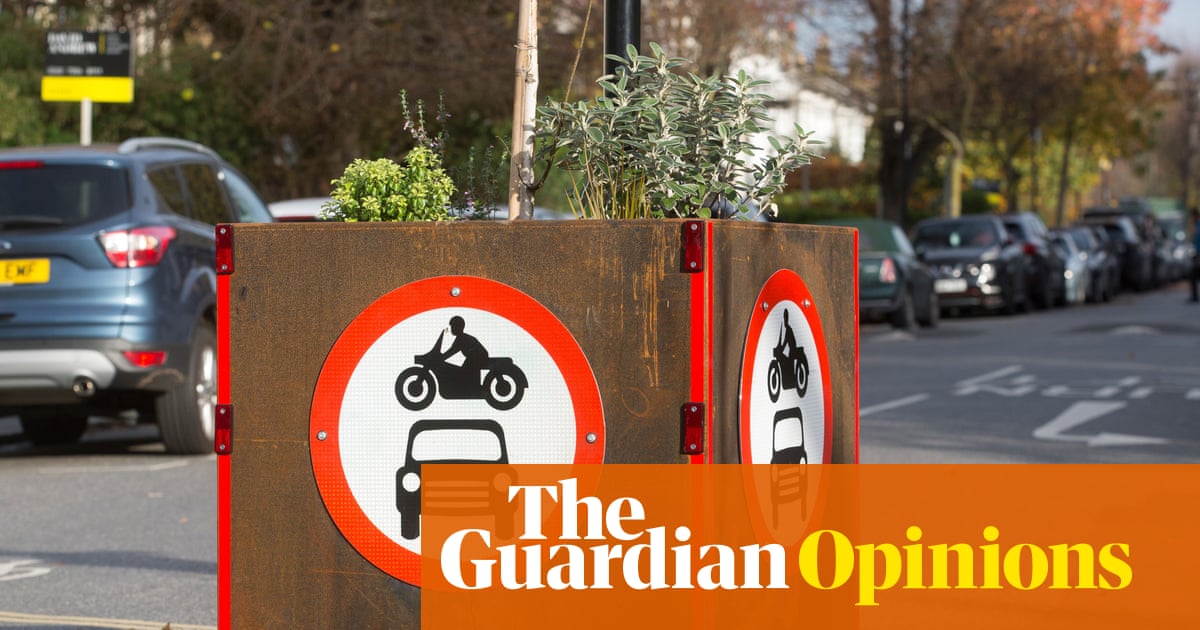Should cars be illegal? Are drivers evil? The way some councils have been imposing “low-traffic neighbourhoods” over the past five years, it seems their leaders definitely think so. Not so much because they want to cut traffic (everybody does) but because of the way they have responded to people who object to the LTNs’ impact on their everyday lives.
So I was more than happy when, last week, the high court ruled that Lambeth council in south London hadacted unlawfullyin ignoring local objections to its latest scheme. I live in another part of Labour-run Lambeth and have seen first-hand how the council repeatedly ignores public concerns over other LTNs in the borough.
Residential roads have been cut off, causing huge traffic queues, increased petrol fumes and inconvenience to ordinary people going about their lives. Those affected include pensioners and people with disabilities facing restricted access to their homes; pedestrians and cyclists endangered by increased traffic; businesses cut off from their customers; and time-poor parents with young children whose school runs have doubled in length.
And when there are roadworks (step forward, Thames Water!) or accidents or breakdowns, the streets regularly become gridlocked. Just Stop Oil protesters would get jail time for causing this kind of chaos.
Objections by local people have been brushed aside, their concerns dismissed as“culture war”bigotry. This is the borough that was one of the staunchest pro-remain areas in the country. There’s no “culture war” here, just a council that has ignored petitions and public protests in a desire to claim a green identity in the absence of any other notable achievement.
I have no ideological objection to LTNs. I want there to be less traffic. I love cycling and used to take my kids to school by bike whenever I could. There may be places where LTNs work, and I can’t speak for other parts of the country where they’ve been introduced. But the experience in Lambeth shows how evidence can be ignored and opposition swept to the margins.
Many LTNs were introduced in 2020, without any consultation, supposedly in response to the impact of Covid (bizarre for a time when traffic levels were already plummeting). The thinking was that by closing residential streets, traffic would somehow disappear. It’s true that the roads inside the LTNs became quieter but in Lambeth, traffic was funnelled into main roads (known as “boundary roads”), creating long, slow-moving vehicle queues in less desirable areas, leaving residents of these roads to contend with the displaced traffic and fumes. Yet their concerns were ignored. It’s no surprise that Rosamund Kissi-Debrah, who tragically lost her nine-year-old daughter Ella to an asthma attack triggered by air pollution, hascome out against LTNs.
Councils’ justification for LTNs later switched to the promotion of “active travel” – but in our part of Lambeth the streets are extremely hilly so cycling is not possible for most of the population. For those who are elderly or have disabilities, this is even less of an option. And if anyone thinks the council is sincerely listening to residents’ concerns, then note the disastrous introduction of the Streatham Wells LTN in October 2023. Imposed next to an existing LTN, it created catastrophic delays. Public transport was caught up too – in one case a queue ofmore than 40 London buseswas photographed snaking down the High Road. Three-mile journeys took two hours to complete. The story went global – you could probably see the bus queues from space. Yet Lambeth did not relent, and it took theintervention of London’s mayor, Sadiq Khan– dismayed that his buses were becoming unrideable – before the scheme was scrapped.
Ultimately, the main problem with the LTNs is that they are all stick, no carrot. For all the restrictions and the penalty notices, there has been almost zero improvement in public transport. There are no new bus routes to make travel easier; no extra trains; and in most of southLondonthere is still no underground, a lack of investment that creates millions of unnecessary car journeys across the capital.
Many people will, of course, have little sympathy with drivers, especially if they don’t own a car. Yet there’s a hypocrisy here. Because I can’t think of anyone, car owner or not, who doesn’t regularly depend on a personal driver: be that the Uber driver, the person who delivers the online shopping, or the local plumber or electrician. The time wasted in queues, the frustration and the extra fuel consumption are all outsourced to the little guy.
There should be a way around this, but the first step would be to listen. Lambeth has been exposed for ignoring its residents. Those who oppose LTNs are not rabid petrol-headed rightwingers who want to burn up the planet: they’re mostly just ordinary people trying to go about their daily business whose life has been made miserable. They have a right to be heard. And those in power should remember: car ownership is not a crime. Drivers are not evil.
Joseph Harker is the Guardian’s senior editor, diversity and development
